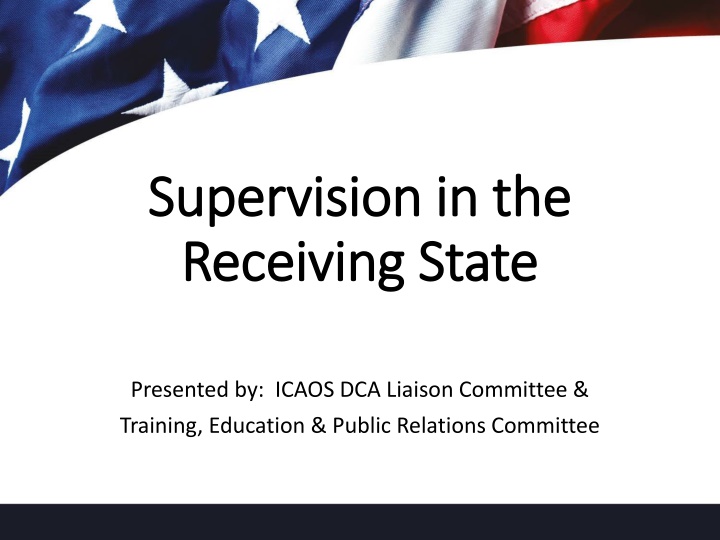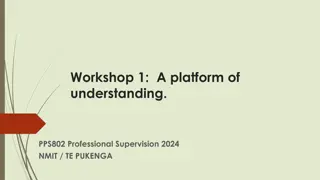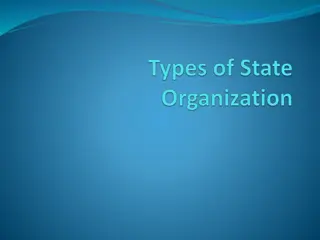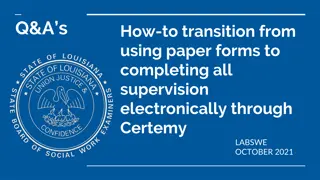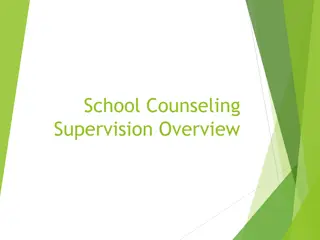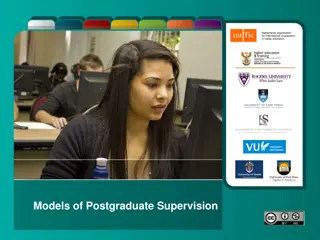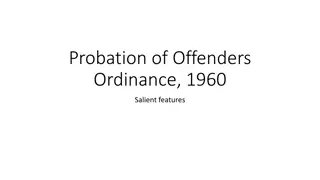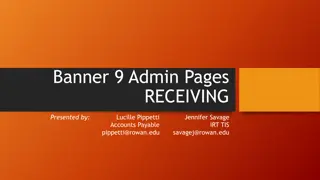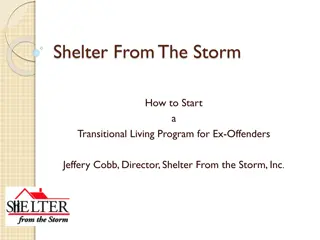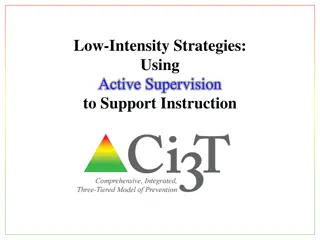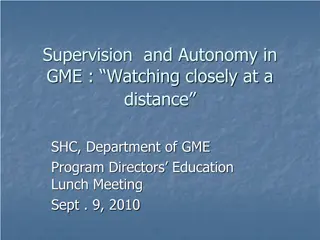Supervision Considerations in Receiving States for Compact Offenders
Explore key training objectives, response to pending charges, and revocable behaviors in supervising compact offenders in receiving states. Learn about the importance of identifying and reporting new offenses and court-related information. Understand the issues surrounding permanent revocation and differences in supervision authority for offenders with pending charges. Delve into the complexities of bail provisions and extradition agreements between sending and receiving states.
Download Presentation

Please find below an Image/Link to download the presentation.
The content on the website is provided AS IS for your information and personal use only. It may not be sold, licensed, or shared on other websites without obtaining consent from the author.If you encounter any issues during the download, it is possible that the publisher has removed the file from their server.
You are allowed to download the files provided on this website for personal or commercial use, subject to the condition that they are used lawfully. All files are the property of their respective owners.
The content on the website is provided AS IS for your information and personal use only. It may not be sold, licensed, or shared on other websites without obtaining consent from the author.
E N D
Presentation Transcript
Supervision in the Supervision in the Receiving State Receiving State Presented by: ICAOS DCA Liaison Committee & Training, Education & Public Relations Committee
Training Objectives Training Objectives Considerations for responding to pending charges & revocable behavior Learn about differences in supervision between sending & receiving states Share communication tips/best practices
Responding to Pending Charges & Revocable Behavior
Whats important. Identify and report circumstances of new offense Include other revocable behaviors Prosecuting courts information Is the court aware of compact rules and implications? Are hearings scheduled? If so, when? Has bail been given? If so, how much? Is there a condition restricting out of state travel?
What are the issues? Path to permanent revocation varies as does what revocation means in definition of behavior requiring retaking What differences exist in what is imposed on instate offenders prior to revocation vs a compact offender when considering submission of a violation report requiring retaking ?
What are the issues? For some, no authority to supervise offenders when pending charges exist With the exception of offender s discharged from supervision by sentencing authority (sending state,) receiving states remain responsible for supervision while the offender remains in the receiving state. See AO 1-2019
What are the issues? Some compact offenders (because original sentence is from other state) are afforded bail when an instate offender would be held without bond The language of Rule 5.101-1 anticipates the exercise of discretion for bail in a receiving state by providing the caveat that the prohibition against retaking an offender subject to pending charges is applicable unless the sending and receiving states mutually agree to the retaking or return. See AO 1-2019
Considerations.. Rule 5.101-1 allows for states to mutually agree to retaking What stakeholders are involved in the revocation process in your state? Are the courts notified and educated on the retaking rules when these cases arise? Is my state truly complying with Rule 4.101? (providing consistent supervision and imposition of incentives and sanctions)
Stakeholder Communication is KEY! Elevate issues to Commissioner! Is your legal department or Attorney General aware of your state s limitations and/or advising on questions related to due process in these cases? How long can an offender be held on new pending charges? Has the issue been raised with State Council? Consider legislation/State Supreme Court ruling?
Differences in Conditions of Supervision
Sending State Receiving State Conditions imposed by sentencing authority Conditions consistent to a similar instate offender Communication!!! Remember! Offender application REQUIRES the offender agree to conditions imposed by BOTH sending & receiving states!
GPS GPS What if GPS is imposed at sentencing, but not available in receiving state? What if GPS is available in receiving state, but not imposed on a similar instate offender (due to risk/needs score)? What if GPS is required for similar offenders in the receiving state, but was not imposed as a condition at sentencing?
Marijuana Marijuana What if sending state prohibits use of marijuana, but is allowed for recreational use in receiving state? Medical use only? What if receiving state prohibits use of marijuana, but is allowed/or not subject to violation in the sending state?
Lifetime Supervision Lifetime Supervision Are sending states effectively communicating what lifetime supervision means? Compact vs Non-Compact Eligible Supervision Are there non-monetary conditions requiring monitoring? Sex Offenders: Lifetime registration vs lifetime supervision
Dual Supervision Cases Dual Supervision Cases Are compact offices ensuring review of offender profile prior to submission of activities to ensure consistency in what is being reported? For example, what if probation sends an absconder violation report .is parole being consulted prior to transmission to sending state? NE s MOU for Dual (concurrent) cases-Parole provides supervision
Supervision Documentation Progress Report Violation Report REQUIRING RETAKING Keeps the sending state informed of supervision practices; offender s progress and behavior Invokes requirement for sending state to retake offender Communication!!! THINK: What are you documenting in your own state s case management? Keep the Sending State INFORMED!
Violation Requiring Retaking Reporting Considerations The sending state is only going to know what you tell them Use the same detail if reporting to your own authorities Specifics on how the behavior was determined to be revocable Has the option of working with the offender (e.g. intervention) been exhausted?
